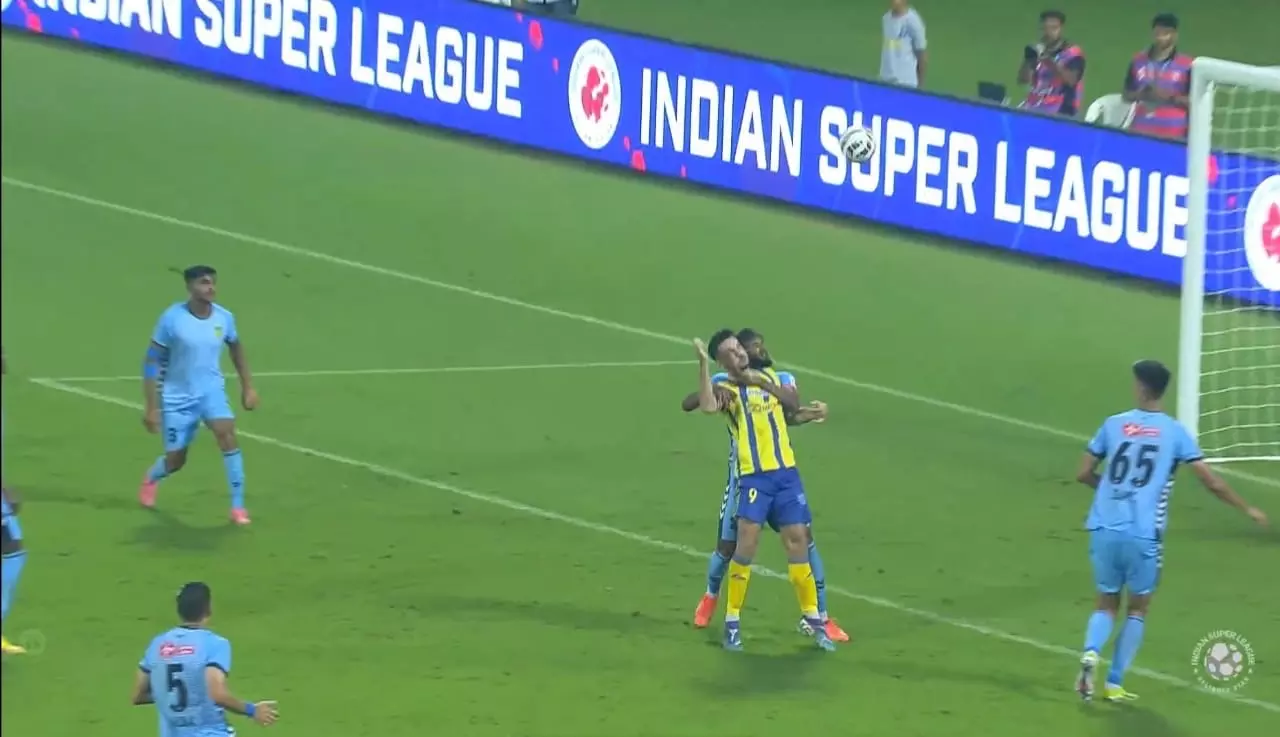Football
'Refereeing standard in Indian football is rising': AIFF's Trevor Kettle
Trevor Kettle defends AIFF refereeing standards, noting progress and VAR plans for ISL.

Controversial calls in KBFC vs Hyderabad FC game (Photo credit: FSDL)
Despite ongoing criticism from ISL coaches and the All India Football Federation’s own president, AIFF’s Chief Refereeing Officer, Trevor Kettle, is confident that Indian refereeing standards are improving.
“The standards of referees in India are improving in many competencies,” Kettle told PTI, noting strides in areas like “growing confidence to take stronger disciplinary action, improved fitness standards to keep up with the game, and a reduction in falling for players’ simulations or exaggerations.”
Kettle’s comments come in the wake of another contentious match—Kerala Blasters vs. Hyderabad FC—where two referee decisions sparked backlash.
While Kettle acknowledged the frustration, he defended the referees, explaining that improvements are ongoing.
“Referees are not infallible, like players, and will make errors of judgment,” he admitted. “At times, this unfortunately impacts the result of a game. Referees are held accountable for continued inaccurate KMI [Key Match Incident] decision-making and will not be prioritized for future appointments.”
The AIFF has introduced a monitoring system for referee performance, he said, where “the accuracy of every KMI in each ISL game is checked by a panel of AFC Referee Assessors and ex-FIFA referees.”
This rigorous review process, he explained, helps set technical training for elite match officials and aims to reduce errors.
Kettle also revealed a solution in the works: the long-awaited VAR (Video Assistant Referee) system, which the AIFF hopes to implement by next season.
He mentioned that currently, KMI accuracy sits around 82.5% without VAR, a number the AIFF intends to push to 97% with its introduction.
“The results of the pre-season Head Coach survey on referees, on average, expected an accuracy of 82.5% without the aid of VAR technology,” he added.
He expressed that more direct communication with clubs and transparency could help resolve frustrations. “I have created an open dialogue with clubs who now have a direct point of contact in me as CRO at AIFF to express their concerns on refereeing matters,” he said.
